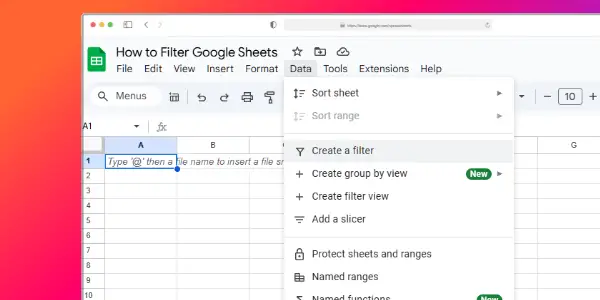Technology has quickly become a vital element of almost all businesses and this has resulted in the development of best practices to help companies manage their business programs more effectively by providing a set of guidelines to follow.
Technical program management best practices are established superior administrative techniques, methods, processes or approaches for maintaining the coordination of a group of interrelated projects called programs from a technical standpoint. These operations also regulate the activities of traditional program managers by offering hands-on guidance.
Organizational and management techniques such as quality control, quality assessment and performance appraisal exist to maintain a consistent evolution of operational procedures in what is known as management best practices.
With its technological advancement, today’s corporate society requires more than traditional rote administration methods, especially if organizations want to achieve their goals. As a result, several management methods exist to drive productivity. This article will discuss technical program management best practices to add finesse to your usual program management.
What Are Technical Program Management Best Practices?
Technical program management best practices are standard approaches technical program managers implement to achieve organizational goals. The method is different from conventional program management because it handles administrative procedures from a technical vantage point.
These best practices can improve communication and collaboration between teams, help to identify and track risks more efficiently, and optimize resources to achieve better results. Implementing these best practices can have a positive impact on a company’s bottom line by improving efficiency and reducing costs.
As a result, the personnel in charge of the process requires hands-on skills and ample specialized experience and expertise to guide the traditional program manager. As an innovative organizational approach, it facilitates the analysis of corporate infrastructure and the development of novel technical products and services to meet user or consumer needs.
However, the choice approach to technical program management depends on the organization’s leadership, available stakeholders, resources, etc. These calculated operational procedures are popular methods most managers have implemented to generate consistent program and project management results.
Technical program management best practices are not set in stone or frozen in time. Instead, they are dynamic, changing and evolving through changing times to adopt the latest trends in business and strategic management.
The program manager can change the technical and operational procedures for handling and running company programs and projects based on experience and current trends in business.
This way, the company keeps developing new ways to manage programs and projects in a systematic order that forms the company guidelines and international standards of operation in larger situations.
Technical management best practices are not just about setting operational procedures and standards for running programs. They involve the maintenance of proper communication between technical and non-technical stakeholders. Members with specialized knowledge of the programs are the technical stakeholders.
For instance, in a company that provides payroll services, the technical stakeholders are those with payroll administrative skills. They could be accountants, bookkeepers or human resource specialists.
The technical stakeholders possess a deeper understanding of the technical program than the non-technical stakeholders. As a result, managing excellent communication between the different stakeholders guarantees that your program will successfully go through the program lifecycle.
Therefore, technical program management best practices help the technical program manager effectively discharge their duties and inspire managers of the organization toward achieving the overall company goals.
Below are three critical program management best practices that work well from a technical standpoint.
Define the Scope of the Program
Technical program management is ineffective without a clear definition of the program’s scope. As a result, all information concerning program deliverables, goals and expected outcomes must be available.
Additionally, comparing these program demands and expectations is a good practice against possible risks. This way, the technical program manager can drive the organization’s affairs by carving a map for the project managers to follow.
In other words, defining your program’s scope means identifying the area of coverage, which is an excellent way to encourage specialization within the organization for effective management.
Identify the Program Goals and Objectives
Defining the program scope leads you to identify the goals and objectives for the program. You must ensure that the program goals align with the organizational goals. Your program goals must be measurable to enable you to track the program’s progress during appraisals.
More importantly, the program goals should be specific to keep all team members in line toward achieving the organizational goals. Therefore, most technical program managers implement two primary approaches simultaneously toward identifying and executing program goals. They include the SMART approach and the SWOT analysis.
Here is a comparison table explaining how both analytical processes differ.
| SMART | SWOT |
| It means specific, measurable, achievable, relevant, and timebound. | It means strength, weakness, opportunities, and threats. |
| It is primarily a goal-setting tool. | It is primarily an analytical tool. |
| It streamlines and defines organizational goals. | It creates the strategy for attaining organizational goals. |
| It does not consider corporate risks. | Organizational risk is a great part of the analysis. |
| It is futuristic in analysis and implementation. | It is more present in analysis and execution. |
| Smart goals are subject to and easily affected by time. | The swot analysis is not time-restricted. |
Create an Effective Program Strategy
The strategy of any organization determines to a large extent, how well they achieve its goals. As a result, creating the organizational system requires great care and attention, especially in technical program management.
Your strategy bears the action plan for achieving the organizational goals. A good program strategy incorporates every aspect of program and project management, from the organization members, stakeholders, processes, tools, techniques, etc.
Also, the best strategies are those that maximize program and project performance by not negatively impacting the parameters for program performance while saving costs for the company. Examples of parameters for program performance include but are not limited to program funding, scheduling, quality, resources allocation utility, etc.
An effective program strategy considers the risks associated with the program to ensure its successful progression through its lifecycle to completion. All stakeholders are not left out while creating an effective program strategy as it allows everyone to contribute their knowledge and skills in a formidable team to drive the organizational goals.
Here are the top five most effective strategies that constitute technical program management best practices.
Top Five Most Effective Strategies for Building Technical Program Management Best Practices
Adopt the Agile or Hybrid Approach to Project Management.
Even though the agile approach began as a software development strategy, it recently evolved into a system in management known as the agile mindset. It is a means of uniting software usage with assigned team members to streamline workflow, especially when dealing with programs or complex projects.
The agile approach relies heavily on teamwork and team-building with lots of collaboration among project managers, which the technical program manager must coordinate.
The agile approach to management is not compatible with every establishment. As a result, not every business requires agile. Instead, a hybrid system is developed by blending some aspects of the agile approach with conventional program management styles.
Hybrid management approaches create an enabling environment for customizing technical methods and software specific to the firm.
Introduce Artificial Intelligence (AI) and Technology
Technology advances at an astonishing speed, leading to several developments in most industries. For instance, Artificial intelligence is used in most daily operations, like creating technical assistant managers such as Alexa, Siri, etc., for smart gadgets and technology.
In business, program and project managers also use Artificial Intelligence to facilitate work processes and improve efficiency and productivity.
Here are the three major forms in which program managers can implement AI in business:
| AI Forms in Business | Organizational and Business Utility |
| KBES (Knowledge-based expert systems) | They use stored knowledge or databases to enable computers to solve complex problems. The knowledge base is maintained by technical program managers who edit or update it from their experiences to add more data for solving more problems. It is a vast store of data that stores and supplies information when the need arises. They contribute immensely to the development of automation in program and project management. |
| ANNs( Artificial Neural Networks) | ANN is made to artificially replicate the functionality of human neural networks. They facilitate the execution of tasks by mastering and learning from existing examples. They contribute immensely to the development of automation in program and project management. |
| FuzzyLogic | Fuzzy logic works by analyzing a system of true or false logic. Programs, and project managers use it to prioritize tasks and structure them according to how much work is required to complete the job. |
Technical program management best practices are incomplete without involving Artificial Intelligence. It allows the execution of complex tasks, especially when dealing with multiple complex projects.
Some complex organizational tasks requiring artificial intelligence include but are not limited to:
- Data visualization
- Scheduling
- Analytics
- Insight generation
- Budget and estimation
- Diagnosis
- Troubleshooting
- Team building and collaboration
- Cloud-based data storage and file sharing.
Encourage Tighter Cybersecurity Measures
Technological development also predisposes several organizations to cyberattacks and information theft. For instance, hackers can carry out cyberattacks on major companies to steal data and access organizational financial information, documents and statements.
However, cybersecurity measures such as the IoT (Internet of things) enable corporations to protect their firm’s information from being tampered with. The internet of things (IoT) is a system of connected computing devices that transfer data while blocking any human interaction.
Not all companies have started implementing it as it is still a novel approach in progress. Instead, other measures like end-to-end encryption, blockchain, encryption software, strong authentication and cryptosystems have evolved as aspects of tighter cybersecurity for most businesses.
Embrace Remote Working Systems
The gig economy adds more efficiency to getting things done within an organization. For instance, more freelancers and independent contractors enable corporations to easily hire workers with specialized technical skills to get the job done.
As a result, remote working contributes to building solid technical program management best practices as most people enjoy working remotely due to the great disruption of the COVID-19 pandemic.
Moreover, remote working enables companies to save money as freelancers are easier and cheaper to maintain than permanent full-time professionals.
It boosts efficiency as outsourcing creates the opportunity to bring a team of experts who work remotely using collaboration tools such as Google docs and Drive. This way, the organization has more hands to complete tasks on time effectively.
Build Effective Emotional Intelligence Among Your Team
Technical program managers recognize the place of emotional intelligence in getting work done. As a result, they care a lot about their team members’ mental and emotional well-being. The reason is that an emotionally balanced team makes for increased productivity and collaboration.
As a result, technical program managers exhibit excellent people skills to understand their team members better and bring out the best in them. Moreover, your team members are human beings with emotions and managing a human workforce can be challenging without a decent degree of empathy.
How Technical Program Management Best Practices Work
These best practices work as a general framework to handle several organizational situations. As a result, they are a set of guidelines that assist the technical program manager in becoming a better program manager.
For example, best practices supply the most efficient ways for team members to carry out their responsibilities. They also provide safety precautions to shield the company from incurring multiple losses and risks.
Best Management Practices for Keeping Technical Programs on Time and on Budget
Budget and financial management are integral aspects of technical program management. The reason is that every organization requires proper financial management to function effectively. Therefore the benefits of staying on time and budget cannot be overstated.
Here is a list of practical strategies you can implement to stay on time and budget while handling technical programs in any organization:
- Use the SWOT analysis to analyze your team’s strengths and weaknesses.
- Document the scope of the program before you begin execution.
- Use the SMART approach to ensure you set the program goals with realistic timelines.
- Get your team members on board with planning and scheduling so that no one is at a deadline disadvantage.
- Use collaboration tools while working remotely.
- Maintain consistent and cordial communication with your team members.
- Encourage employee recognition by celebrating milestones.
Frequently Asked Questions
What Key Factors Make a Technical Program Manager Successful?
Every technical program manager depends on three major skills to succeed in their field of endeavor. The essential technical program management skills are basic information technology and infrastructural and architectural knowledge. Also, an ability to balance communication in both technical and non-technical terms serves as an added advantage.
How Do You Explain the Concept of Adopting Best Practices in Business?
In business, best practice refers to the discovery and implementation of superior ways of working to achieve perceived or preconceived business goals and objectives. It includes keeping up with the latest trends in your industry, adopting the latest technology and maintaining your business’s competitive advantage.
What Do You Need To Become a Good Technical Program Manager (TPM)?
Becoming a good TPM requires essential academic qualifications like a Bachelor’s degree in technical and management studies and knowledge of the lifecycle of product development. However, besides academic qualifications, you require excellent communication skills to enable you to inspire and motivate your team members toward productivity.
Final Thoughts
Technical program management is a rewarding career as it brings you to terms with your problem-solving and analytical abilities. Moreover, succeeding in this endeavor is not restricted to your technical aptitude, and now that you know what best practices to engage in, you can take charge and confidently initiate standard transformations in your organization.





